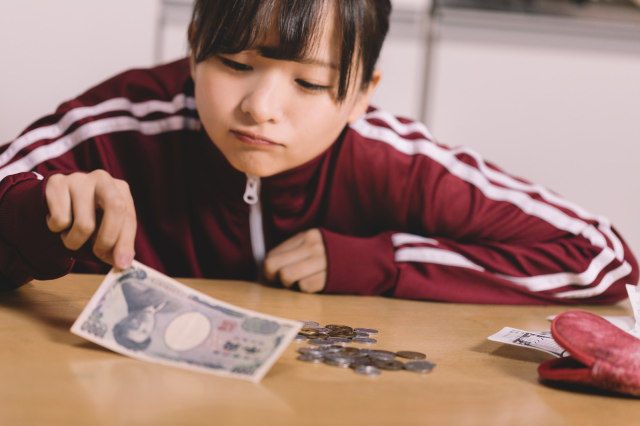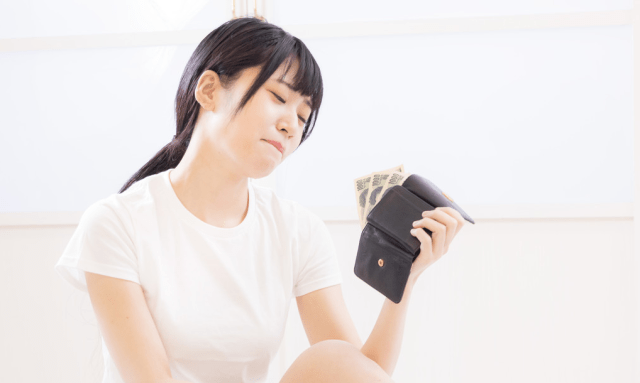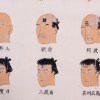
For those who aren’t planning to hang on to their monetary presents from grandma and grandpa, advancing their oshi is the top plan.
In Japan, New Year’s is traditionally celebrated by a trip back to your home town to spend time with relatives, a visit to your local shrine or temple to pray for health and prosperity in the year ahead, and/or eating mochi (which hopefully won’t kill you). But if you’re a kid, there’s an extra part of the New Year’s festivities: otoshidama, gifts of cash you receive inside small festive envelopes.
Just about every kid in Japan gets otoshidama from their grandparents, and the majority get envelopes from their parents, aunts, and uncles too. Add them all up, and it’s not unusual for Japanese children’s wallets to be 30,000 yen (US$272) heavier, if not more so, by the time winter break ends.
So what do they do with that windfall? To investigate, Japanese website Simeji polled Japanese girls between the age of 10 and 19, asking what they planned to do with their otoshidama and getting 977 responses. Japan being a society where stability and self-reliance are instilled as virtues from an early age, the top response was “I’m going to save it.” The number-two response, though, and thereby the top pick among girls who are actually going to spend their money, was “I’m going to use it to support my oshi.” or, in other words, their favorite anime character or idol singer.
How are you going to spend your otoshidama?
1. Savings
2. For my oshi
3. Books/manga
4. Clothing
5. Video games (including in-game purchases)
6. Going out with friends
7. Cosmetics/beauty salon services
8. Stationery
9. Tokyo Disneyland tickets
10. Smartphone
Oshi is a relatively recent addition to Japanese slang, coming from the word osu, which originally means “push” but in this case means to support a person or advance their position. Essentially, a girl’s oshi is the member of an anime cast or multi-vocalist idol group that she thinks should be the one in the spotlight. The belief is that if enough money gets thrown at merchandise for your oshi, producers/talent agencies will take notice and that individual will start getting a more prominent role.
The logic isn’t entirely unsound, seeing as merchandising has become a more powerful driving force in the anime and idol industries than ever before. It’s also worth noting that many male otaku have oshi of their own too, but the oshi enthusiasm in Simeji’s for-girls survey is something that probably wouldn’t have manifested so strongly a generation of fans ago, and is another sign of otaku interests gradually moving towards becoming mainstream entertainment.
Source: Simeji via Niconico News/My Navi News via Jin
Top image: Pakutaso
Insert images: Pakutaso
● Want to hear about SoraNews24’s latest articles as soon as they’re published? Follow us on Facebook and Twitter!


 Flush with New Year’s present cash, Japanese kids can now look forward to…saving it
Flush with New Year’s present cash, Japanese kids can now look forward to…saving it Cha-Ching! Kids in Japan Receive Up to $1,500 During New Year’s
Cha-Ching! Kids in Japan Receive Up to $1,500 During New Year’s Japan’s otoshidama tradition of giving kids money at New Year’s gets a social welfare upgrade
Japan’s otoshidama tradition of giving kids money at New Year’s gets a social welfare upgrade Nearly half of Japanese women in survey have an idol singer or anime crush
Nearly half of Japanese women in survey have an idol singer or anime crush How much should we give in a New Year’s otoshidama without looking like a jerk?
How much should we give in a New Year’s otoshidama without looking like a jerk? The best Hobonichi diaries, covers and stationery for 2026
The best Hobonichi diaries, covers and stationery for 2026 Tokyo street sweets: The must-snack treats of Nakano’s Refutei
Tokyo street sweets: The must-snack treats of Nakano’s Refutei Criminals of Japan’s Edo Period Were Often Punished by Getting Face Tattoos
Criminals of Japan’s Edo Period Were Often Punished by Getting Face Tattoos We find the best “homestyle” onigiri at a super local chain of convenience stores
We find the best “homestyle” onigiri at a super local chain of convenience stores Beautiful blue apple jam is taking the Japanese internet’s breath away!
Beautiful blue apple jam is taking the Japanese internet’s breath away! Naruto and Converse team up for new line of shinobi sneakers[Photos]
Naruto and Converse team up for new line of shinobi sneakers[Photos] Japanese man accepts hostess’ invitation for night view date, sees type of stars he didn’t want to
Japanese man accepts hostess’ invitation for night view date, sees type of stars he didn’t want to Ghibli’s Kiki’s Delivery Service returns to theaters with first-ever IMAX screenings and remaster
Ghibli’s Kiki’s Delivery Service returns to theaters with first-ever IMAX screenings and remaster You can now visit a recreation of Evangelion’s Tokyo-3 and live there in miniature form in【Pics】
You can now visit a recreation of Evangelion’s Tokyo-3 and live there in miniature form in【Pics】 Why don’t black-and-white cats have light-coloured backs and black bellies?
Why don’t black-and-white cats have light-coloured backs and black bellies? Starbucks Japan releases first-ever Hinamatsuri Girls’ Day Frappuccino
Starbucks Japan releases first-ever Hinamatsuri Girls’ Day Frappuccino Japanese restaurant chain serves Dragon Ball donuts and Senzu Beans this spring
Japanese restaurant chain serves Dragon Ball donuts and Senzu Beans this spring Highest Starbucks in Japan set to open this spring in the Tokyo sky
Highest Starbucks in Japan set to open this spring in the Tokyo sky Tokyo Skytree turns pink for the cherry blossom season
Tokyo Skytree turns pink for the cherry blossom season Japan Extreme Budget Travel! A trip from Tokyo to Izumo for just 30,000 yen [Part 1]
Japan Extreme Budget Travel! A trip from Tokyo to Izumo for just 30,000 yen [Part 1] Yakuzen ramen restaurant in Tokyo is very different to a yakuza ramen restaurant
Yakuzen ramen restaurant in Tokyo is very different to a yakuza ramen restaurant Japan has only one airport named after a samurai, so let’s check out Kochi Ryoma【Photos】
Japan has only one airport named after a samurai, so let’s check out Kochi Ryoma【Photos】 Japanese drugstore sells onigiri at pre-stupid era prices, but how do they compare to 7-Eleven?
Japanese drugstore sells onigiri at pre-stupid era prices, but how do they compare to 7-Eleven? Japan Extreme Budget Travel! A trip from Tokyo to Izumo for just 30,000 yen [Part 2]
Japan Extreme Budget Travel! A trip from Tokyo to Izumo for just 30,000 yen [Part 2] Adorable Totoro acorn key holders come with a special guest hidden inside[Photos]
Adorable Totoro acorn key holders come with a special guest hidden inside[Photos] Japan’s newest Shinkansen has no seats…or passengers [Video]
Japan’s newest Shinkansen has no seats…or passengers [Video] Starbucks Japan releases new sakura goods and drinkware for cherry blossom season 2026
Starbucks Japan releases new sakura goods and drinkware for cherry blossom season 2026 Foreigners accounting for over 80 percent of off-course skiers needing rescue in Japan’s Hokkaido
Foreigners accounting for over 80 percent of off-course skiers needing rescue in Japan’s Hokkaido Super-salty pizza sends six kids to the hospital in Japan, linguistics blamed
Super-salty pizza sends six kids to the hospital in Japan, linguistics blamed Starbucks Japan unveils new sakura Frappuccino for cherry blossom season 2026
Starbucks Japan unveils new sakura Frappuccino for cherry blossom season 2026 Foreign tourists in Japan will get free Shinkansen tickets to promote regional tourism
Foreign tourists in Japan will get free Shinkansen tickets to promote regional tourism The 10 most annoying things foreign tourists do on Japanese trains, according to locals
The 10 most annoying things foreign tourists do on Japanese trains, according to locals Take a trip to Japan’s Dododo Land, the most irritating place on Earth
Take a trip to Japan’s Dododo Land, the most irritating place on Earth Is China’s don’t-go-to-Japan warning affecting the lines at a popular Tokyo gyukatsu restaurant?
Is China’s don’t-go-to-Japan warning affecting the lines at a popular Tokyo gyukatsu restaurant? Survey asks foreign tourists what bothered them in Japan, more than half gave same answer
Survey asks foreign tourists what bothered them in Japan, more than half gave same answer Japan’s human washing machines will go on sale to general public, demos to be held in Tokyo
Japan’s human washing machines will go on sale to general public, demos to be held in Tokyo Starbucks Japan releases new drinkware and goods for Valentine’s Day
Starbucks Japan releases new drinkware and goods for Valentine’s Day We deeply regret going into this tunnel on our walk in the mountains of Japan
We deeply regret going into this tunnel on our walk in the mountains of Japan Studio Ghibli releases Kodama forest spirits from Princess Mononoke to light up your home
Studio Ghibli releases Kodama forest spirits from Princess Mononoke to light up your home Major Japanese hotel chain says reservations via overseas booking sites may not be valid
Major Japanese hotel chain says reservations via overseas booking sites may not be valid Put sesame oil in your coffee? Japanese maker says it’s the best way to start your day【Taste test】
Put sesame oil in your coffee? Japanese maker says it’s the best way to start your day【Taste test】 No more using real katana for tourism activities, Japan’s National Police Agency says
No more using real katana for tourism activities, Japan’s National Police Agency says Do Japanese superfans really want to marry their favorite idol?【Survey】
Do Japanese superfans really want to marry their favorite idol?【Survey】 How much money should you give children for New Year’s otoshidama? Adults weigh in
How much money should you give children for New Year’s otoshidama? Adults weigh in Anime vs. idols? Latest annual otaku survey shows where fans are spending their money
Anime vs. idols? Latest annual otaku survey shows where fans are spending their money We turn 100,000 yen into 100,000 one-yen coins, in the spirit of New Year’s generosity
We turn 100,000 yen into 100,000 one-yen coins, in the spirit of New Year’s generosity Japanese otaku now have special trash box just for merch of their former anime and idol crushes
Japanese otaku now have special trash box just for merch of their former anime and idol crushes Another New Year cash giveaway hinted at by former Zozotown CEO Yusaku Maezawa
Another New Year cash giveaway hinted at by former Zozotown CEO Yusaku Maezawa Survey asks Japanese teens which school club they want to join, and “kitaku” club is top choice
Survey asks Japanese teens which school club they want to join, and “kitaku” club is top choice Japanese man’s bank isn’t satisfied with him cancelling fixed deposit to support favorite idol
Japanese man’s bank isn’t satisfied with him cancelling fixed deposit to support favorite idol Man pretending to be idol singer producer arrested on charge of kidnapping 14-year-old Tokyo girl
Man pretending to be idol singer producer arrested on charge of kidnapping 14-year-old Tokyo girl “There are many mentally unwell girls in AKB48” claims ex-member of Japan’s top idol singer group
“There are many mentally unwell girls in AKB48” claims ex-member of Japan’s top idol singer group Survey reveals how Japanese people plan to spend the 2023 New Year’s holiday
Survey reveals how Japanese people plan to spend the 2023 New Year’s holiday Spending New Year’s alone? Japanese restaurant has special one-person kosechi New Year’s meals
Spending New Year’s alone? Japanese restaurant has special one-person kosechi New Year’s meals Japan’ deadliest New Year’s food may be even more dangerous in 2021 due to the coronavirus
Japan’ deadliest New Year’s food may be even more dangerous in 2021 due to the coronavirus 85-year-old great-grandmother from Hiroshima is Japan’s newest virtual YouTuber/idol【Video】
85-year-old great-grandmother from Hiroshima is Japan’s newest virtual YouTuber/idol【Video】